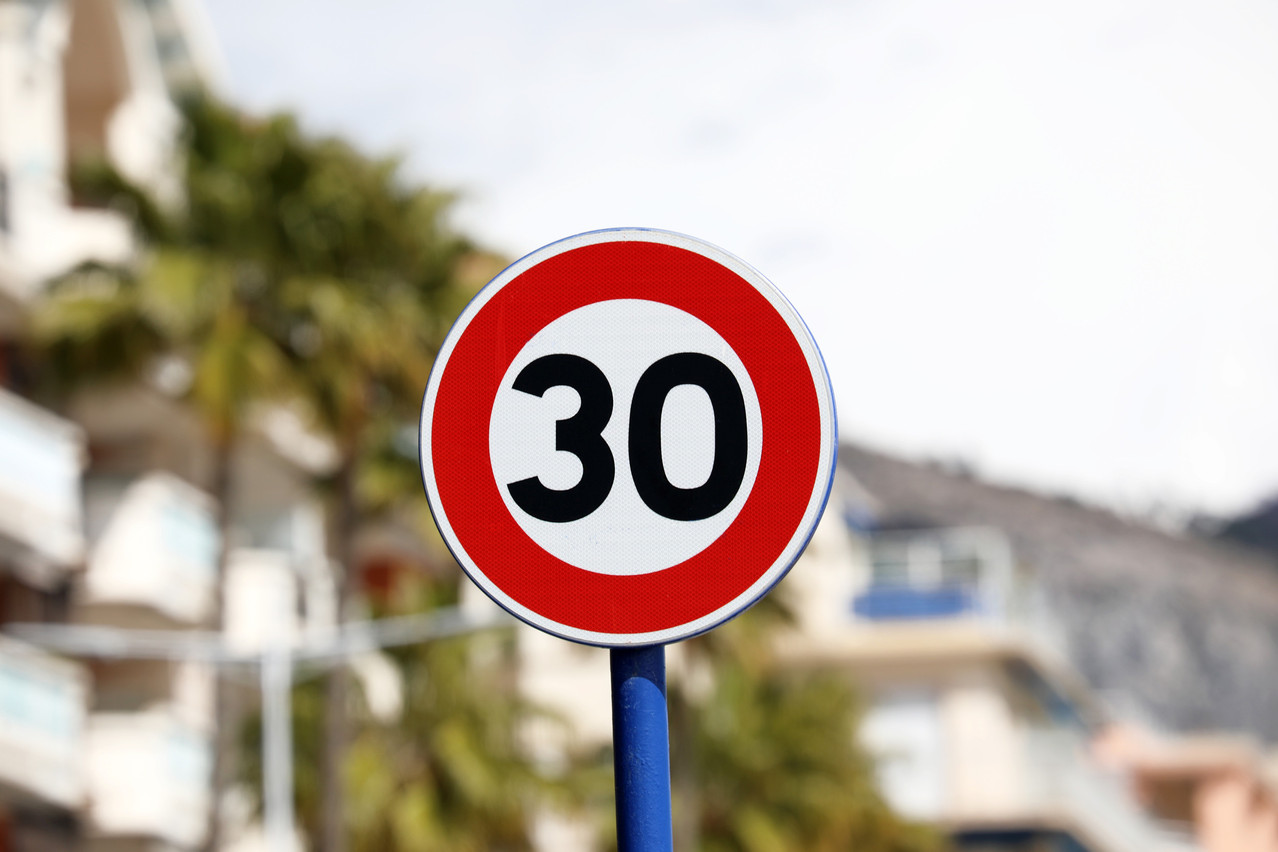“Strict road safety measures, such as a 30km/h limit and a zero tolerance towards alcohol, are needed to achieve the goal of zero deaths by 2050,” says the European parliament in an official statement.
The proposition has gathered 615 votes in favour of these new measures, while 24 voted against and 48 abstained. These regulations would cap the speed limit in cities at 30km/h--a limit already implemented in cities like Paris and Brussels. In Luxembourg, the maximum limit currently remains 50 km/h, with 30 km/h areas near schools for example.
“We are in full support of these measures being applied to Luxembourg too,” says Paul Hammelmann, president of the Sécurité routière, in an interview with Delano. Changing the general limit to 30 km/h in all cities would help clear some misunderstandings too; sometimes, drivers aren’t sure if they’re supposed to drive at 50 km/h or 30 km/h, which leads them to feel cheated when they get flashed by a radar.
A solution to the traffic jam problem
Lowering the speed limit would also bring down traffic congestions, an issue that plagues Luxembourg commuters on a daily basis. The Securité routière supports these claims. Hammelmann says: “In places where the limit was brought down, homogenised and respected, traffic became smoother.”
Of course, such a change in legislation would need to be enforced by stricter controls, such as more fixed radars in urban spaces.
“Alcohol is a bit of a sacred cow in Luxembourg”
When asked about the EU’s proposition on zero tolerance towards drink-driving, Hammelmann says it would be more difficult to implement. He expects a lot of resistance and opposition, considering that the current limit is somewhat of an untouchable right for many people in the country. “We’re not against the consumption of alcohol, but against drinking and driving.”
If a zero tolerance is implemented, people would have to constantly organise themselves more or rely on public transportation, which is a challenge in rural Luxembourg. “If you really want to achieve a zero alcohol consumption rate in drivers, then public transportation has to develop further too.”
The EU has stated that
Whether this legislation can reach Luxembourg soon, depends on the European Parliament. But the ministry of transportation wouldn’t be against it, concludes Hammelmann.
